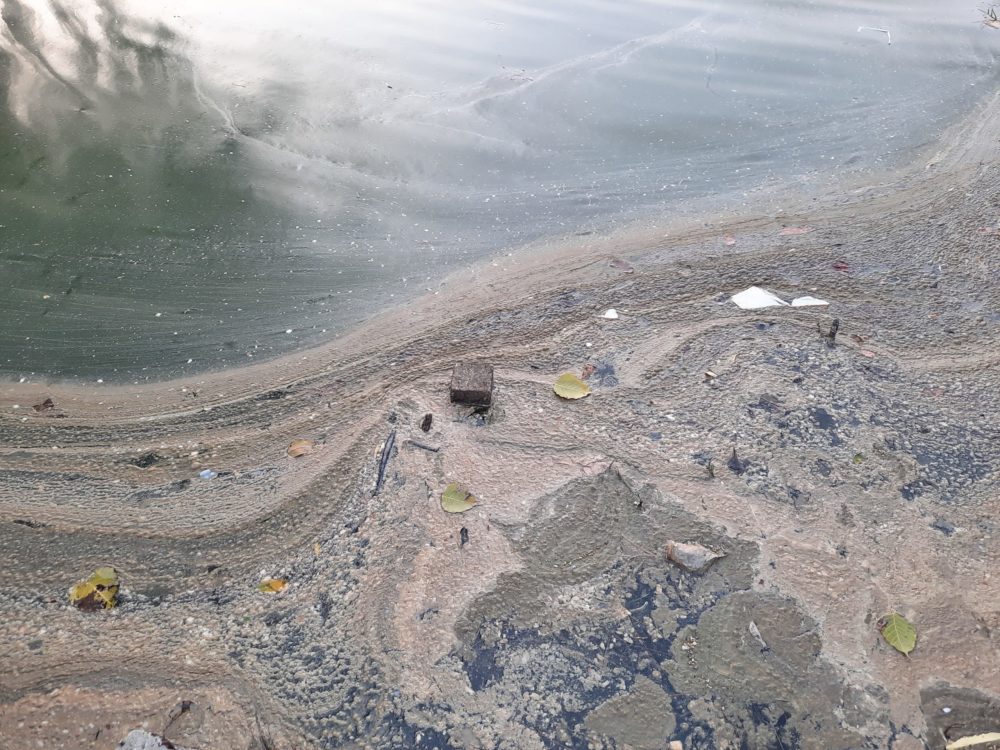Water bosses responsible for repeated sewage dumping could face criminal charges

Water bosses will face criminal charges and be stripped of their bonuses for repeated illegal sewage dumping under tightened-up regulations, Environment Secretary Steve Reed has said.
New laws he is introducing to Parliament will “give regulators more teeth”, he wrote in the Mail on Sunday.
“Water bosses responsible for repeated illegal sewage dumping will face criminal charges, and I’ll ban the payment of their multimillion-pound bonuses until they clean up their toxic filth,” the Cabinet minister said.
Profitable
He said it is currently “more profitable to let the pollution flow rather than fix the broken pipes” and that regulation is too weak to stop it.
“This should never have been allowed to happen, and, with our new Labour government, it will never happen again.”
Questioned by Victoria Derbyshire on the BBC’s Sunday with Laura Kuenssberg programme, Mr Reed could not say what level of dumping would need to happen before criminal charges would be triggered.
He said: “What I want to do is clean up our water. We’ll do it by making the water bosses face criminal charges if they are responsible for persistent, severe levels of illegal sewage dumping.
“We will ban the payment of their multimillion-pound bonuses while they’re overseeing that kind of failure.
“We will ring-fence customers’ money that is earmarked for spending on investing in the sewer system. So, if it’s not spent on that, it will be refunded to customers in a discount on their bills.”
Dŵr Cymru
Last week National Resources Wales published its annual report on the performance of Dŵr Cymru/ Welsh Water, which noted an increase in the number of serious pollution events during 2023.
The company was responsible for a total of 107 sewage pollution incidents during 2023.
The number of serious pollution incidents rose from five to seven, including a major incident involving a burst sewer pipe on the River Taff at Pontypridd in March last year.
The report also flags concerns about a small but significant decline in water discharge permit compliance, dropping to 98%.
Improvements were made to the number of pollution incidents self-reported to NRW, rising to 70% during 2023, but still falling short of the minimum 80% target.
The Environment Agency said in its annual report that there were 47 serious pollution incidents in England last year – up from 44 in 2022.
Four companies – Thames Water, Anglian Water, Southern Water and Yorkshire Water – caused 90% of those incidents.
Finacially viable
Mr Reed also said he will not temporarily nationalise Thames Water because it remains financially viable.
He said there is “no need to have undue concerns at the moment” and that there is “no threat to water supply”.
Thames Water has had its credit rating downgraded to “junk” status by influential ratings agency Moody’s, indicating that the credit agency firm thinks the utilities company is likely to default on its debt and may add to its financial pressures.
Regulator Ofwat has said it will impose a “turnaround oversight regime” on Thames Water.
Support our Nation today
For the price of a cup of coffee a month you can help us create an independent, not-for-profit, national news service for the people of Wales, by the people of Wales.






Yes, penalise the bosses not the company. Fining the company only leads to over-the-top bill increases for customers. They get fined and the customer pays.
In no other industry would it be allowed, let alone tolerated, to foul our waterways with human detritus. We in Wales have it bad both ways. We have non-profit Dwr Cymru controlled by Glas Cymru who should know better and numerous English water companies who do profit off our natural resource only to pollute with filth our rivers & coastline. This is reminiscent of tobacco firms whose product kills millions but allowed to make trillions in profit with the UK government gaining its share through taxing death. Can you imagine food producers being allowed to offer tainted meat products. Simple… Read more »
‘Non-profit’ is a complete smoke screen. It’s the classic sleight of hand used by housing associations, charities and the like: they keep the net profit that’s to be re-invested low by paying their executives six-figure salaries and other dubious financial mechanisms. For example, housing associations typically pay more into company pensions than they spend on new housing.
All run by self styled “socialists” who couldn’t give a sh*t for the rank and file who rely on them for quality housing and leadership.
Let’s force water companies to construct huge underground concrete tanks to store as much mixed waste water as possible in times of heavy rain then gradually feed it back to treatment works.
It is unlikely that any threat to ‘strip bosses bonuses’ will work on the private water companies in England because they are owned overseas and by then making a ‘boss’ also a director of the overseas holding company from which a bonus can be paid. So it will be beyond the reach of any such legislation. The only water company affected will be Dwr Cymru. Fines imposed on the resident operating company will be just added to water bills. No matter how Labour try to fudge it, the only solution is re-nationalisation, public ownership like in Ireland and Scotland.
“Mr Reed also said he will not temporarily nationalise Thames Water because it remains financially viable.”
Viable?
Last week, Moody’s reduced Thames Water’s credit rating to “junk“, according to Reuters.